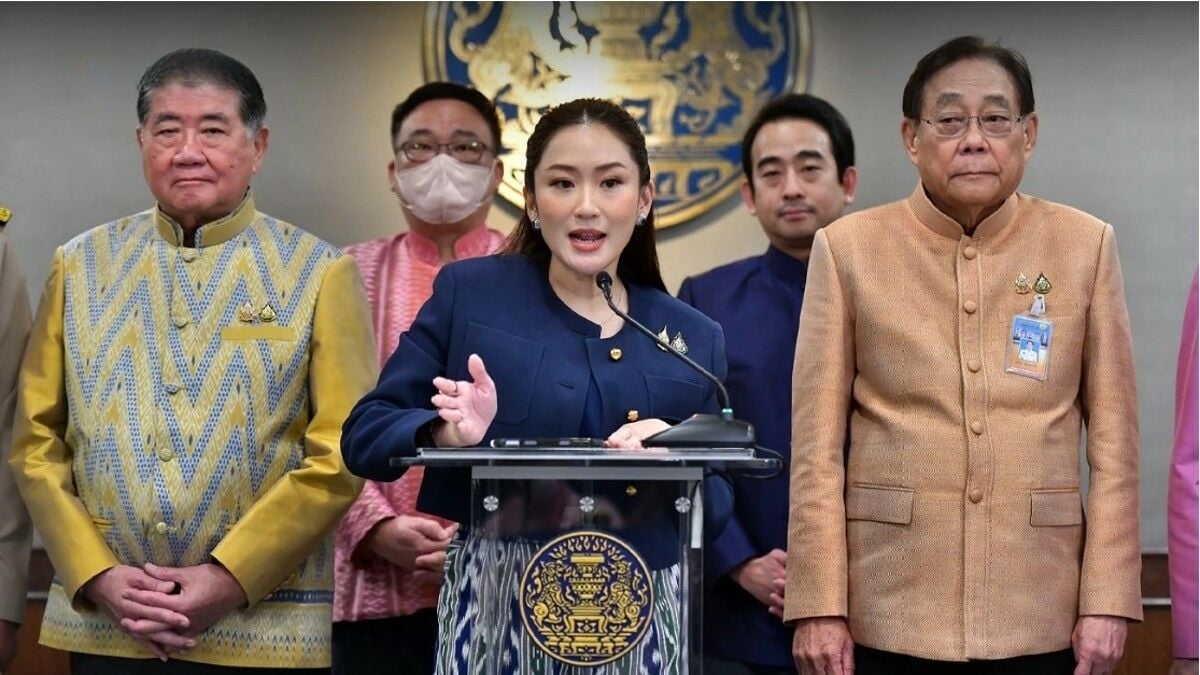Pheu Thai hits the brakes on Amnesty push

The Pheu Thai Party has put the brakes on its push for an Amnesty Bill, aware that it could spark a political storm and risk the stability of its already fragile coalition government. The ruling party, led by Prime Minister Paetongtarn Shinawatra, is walking a tightrope, as opposition from the Senate looms large.
Despite holding a slim majority in Parliament, the Pheu Thai is wary of amending key constitutional provisions, particularly those that define the ethical standards of political officeholders. The 2017 Constitution, penned by the NCPO military junta, presents formidable obstacles to any significant changes.
A daunting referendum process requires at least 50% of eligible voters to turn out and give more than 50% approval for any amendment – a double-majority feat that’s tough to achieve. Even if the public is on board, Pheu Thai faces another roadblock: securing the support of one-third of the Senate, a steep ask given the current political landscape.
The Amnesty Bill is no less contentious. With Senate factions likely to block it, the bill could be sidelined. However, Pheu Thai isn’t powerless. Its 142 government MPs, boosted by 25 from General Thamanat Prompao’s faction, hold sway in the lower House of Representatives. What’s more, the opposition People’s Party, which holds 143 seats, has backed constitutional reform.
In a show of political acumen, Pheu Thai is opting for a cautious approach.
“We must tread carefully to maintain stability and avoid any unnecessary political pitfalls.”
By delaying its legislative changes, the party is securing its position and avoiding confrontation with the Senate.
As for the People’s Party, it’s not waiting around. It’s rallying citizens for a new constitution, but Pheu Thai’s slow and steady strategy could pay off in the long run. The party seems to be playing the long game, aiming for stability, extended tenure, and stronger public support, reported The Nation.
ORIGINAL STORY: People’s Party urges urgent rewrite of 2017 constitution
The opposition People’s Party (PP) called on the government to prioritise the rewrite of the 2017 constitution as an urgent policy. The party, formerly known as the Move Forward Party, expressed doubts about the promised changes, citing the minimal mention and low priority given to the charter rewrite in the government’s recent policy statement.
Natthaphong Ruengpanyawut, PP leader, criticised the government’s approach during the first day of a two-day parliamentary session dedicated to the government’s policy statement and subsequent debate. He challenged Prime Minister Paetongtarn Shinawatra to explain, in her own words, why the charter rewrite is not being treated as a priority if the government fails to address this issue.
“If the government cannot make the charter rewrite a priority, I will ask the prime minister to stop reading from her script and tell us why not herself.”
The PP urged the government to reclassify the charter rewrite as an urgent policy alongside four amendment bills proposed by the party. Unlike the policy statement delivered by former Prime Minister Srettha Thavisin in September last year, which listed the charter rewrite as one of his administration’s five urgent policies, the recent statement by the new Thai PM did not give it the same emphasis.
This time, the statement only mentioned that the government would expedite the drafting of a people’s version of the constitution and make it as democratic as possible, without providing much detail.
Political time bomb
Phuthita Chaianuan, a PP MP for Chiang Mai, described the 2017 constitution as a political time bomb, criticising its allowance for judicial activism and military influence over government and the public.
“This problem is evident but the government dares not even clearly talk about it. Why on earth does the charter rewrite now come after the middle- and long-term policy categories? And why does the government dare not pledge when to begin and finish it?”
Phuthita also pointed out the lack of public participation in the new policy statement, which contrasts with previous promises. Earlier commitments included public involvement in designing the charter referendum question and drafting the new constitution. These elements, she noted, had disappeared from the current policy statement.
“This makes me seriously doubt if the public will be allowed to take part in the charter rewrite, whether a new charter drafting assembly will be elected by voters, and if the promised charter rewrite will ever happen.”
Prime Minister Paetongtarn delivered her policy statement in Parliament, focusing primarily on measures to improve people’s financial status and increase state income, reported Bangkok Post.
Latest Thailand News
Follow The Thaiger on Google News:


























